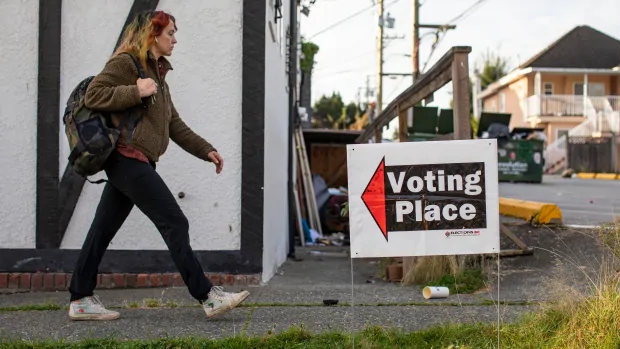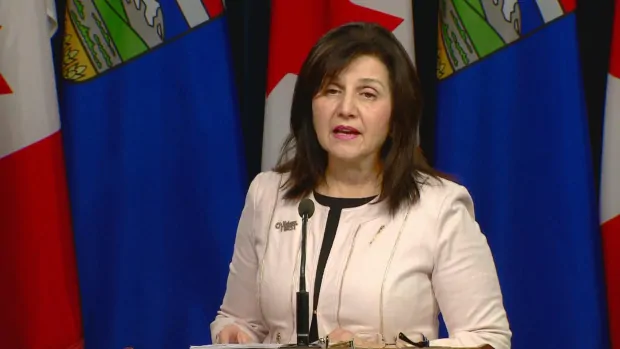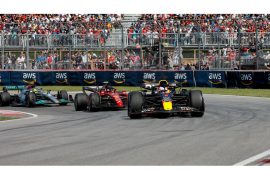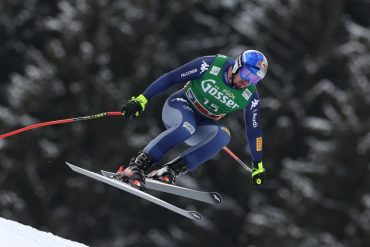It’s officially election day in B.C.’s first provincial vote held during a pandemic.
The polls close at 8 p.m. PT, but it could take some time before voters know whether NDP Leader John Horgan’s gamble on a snap election has paid off.
As a result of COVID-19, B.C. has seen a 7,200-per-cent surge in votes cast by mail compared to the last election, along with an increase in advance voting.
“Never before have so many voters voted before election day in British Columbia electoral history,” chief electoral officer Anton Boegman told reporters Friday.
Polling stations open at 8 a.m., and Elections B.C. is asking voters to bring a mask if they wish, along with a valid ID showing name and address and a “where to vote” card.
Voters who haven’t received a card in the mail will still be able to vote, as long as they bring identification or other documents with their current address.
As things stood when the legislative assembly was dissolved on Sept. 21, the New Democrats had held onto power for three years with a precarious minority propped up by a confidence-and-supply agreement with the Green Party.
If Horgan manages to keep a grip on that power, he’ll be the only two-term premier in his party’s history.
Most polls have the NDP with a comfortable lead over Andrew Wilkinson’s Liberals and Sonia Furstenau’s Greens, but surprise upsets are familiar territory for British Columbians.
The polls ahead of the 2013 election so heavily favoured the New Democrats that The Province newspaper ran a front-page photo of then-leader Adrian Dix with the headline “If this man kicked a dog, he’d still win the election.”
But come election night, the NDP was trounced by Christy Clark and the Liberals, who came away with the party’s fourth straight majority win.
COVID-19 meant a different sort of campaign season
The 2020 campaign has been an unusual one, with candidates favouring public sign-waving sessions and virtual town halls over traditional door-knocking and campaign rallies in order to prevent the spread of COVID-19.
The pandemic has also meant a major shift in how people vote, with a big chunk of British Columbians casting their votes by mail to avoid attending the polls in person.
There are a little under 3.49 million people registered to vote in this election. As of Friday morning, a third of those had already cast their votes.
That includes 478,900 vote-by-mail packages received by Elections BC, as well as 681,055 advance votes. At a total of about 1.16 million votes, that’s well over half the total voter turnout in 2017.

The shift to mail-in ballots means many votes won’t actually be counted among the results announced on Saturday night, and it’s possible British Columbians won’t have a clear idea of who will form the next government for nearly two weeks.
Elections officials estimate that somewhere between 30 to 35 per cent of ballots will have to wait for the final count, the results of which won’t be known for at least 13 days.
In a normal year, about 90 per cent of ballots are counted on election night.
Yet, in the recent history of B.C.’s politics, an uncertain outcome isn’t unusual.
The strange election night of May 9, 2017, saw the Liberals fall just one seat short of a majority, with 43 seats to the NDP’s 41. The razor-thin advantage was still in question by the end of the night because the NDP held the riding of Courtenay-Comox by just nine votes over the Liberals, raising the possibility of a tie.
When all of the absentee ballots were counted 13 days later in Courtenay-Comox, NDP candidate Ronna-Rae Leonard had won by 189 votes over B.C. Liberal candidate Jim Benninger.
The Liberals’ tenuous hold on power was short-lived. Just 52 days after the election, then-lieutenant governor Judith Guichon asked Horgan to form a new government following a non-confidence vote in the legislature.
CBC’s live coverage of the 2020 B.C. election begins at 7 p.m. PT on radio, TV and online.

Devoted web advocate. Bacon scholar. Internet lover. Passionate twitteraholic. Unable to type with boxing gloves on. Lifelong beer fanatic.




